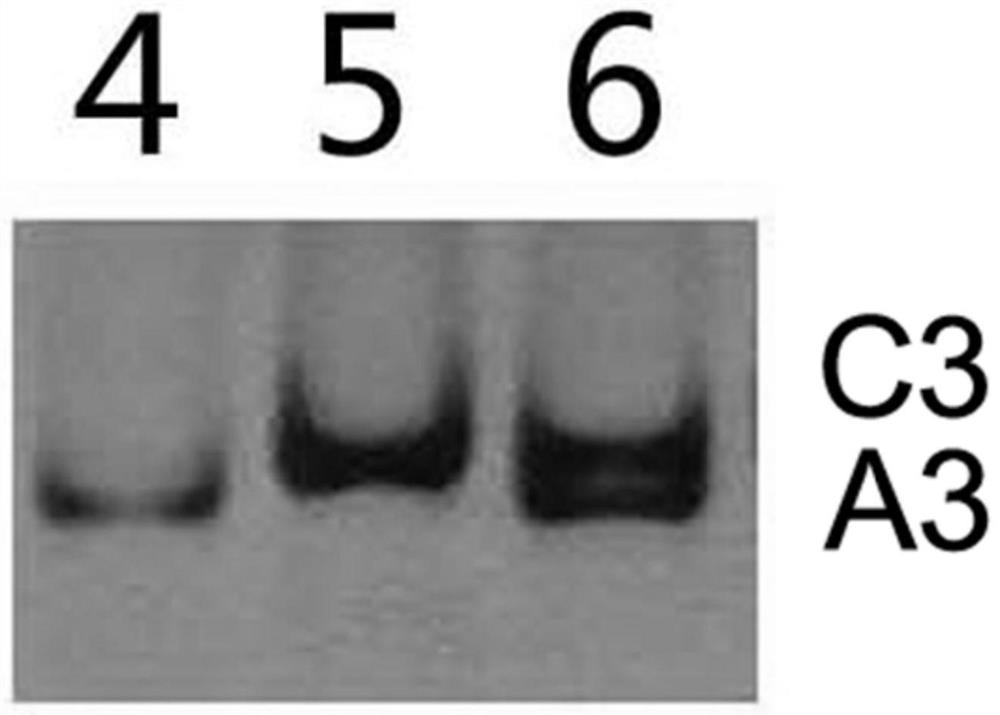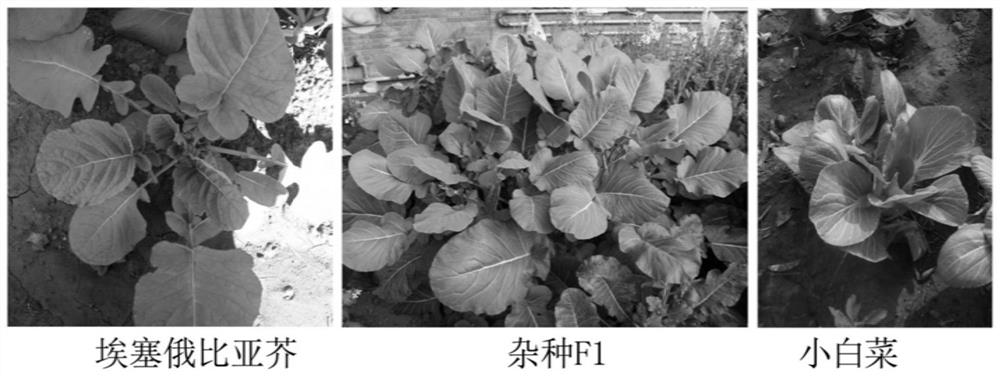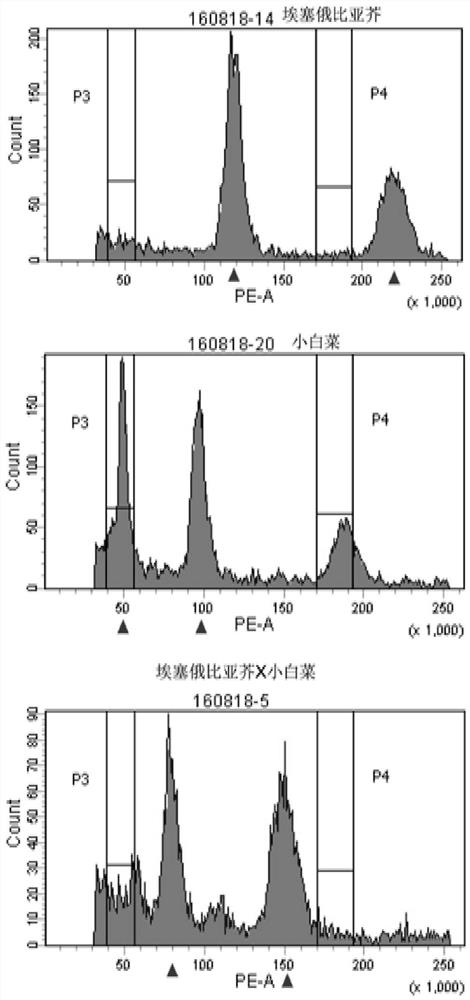Molecular markers for identification of a03 and c03 chromosome segregation in hybrids between Chinese cabbage and Ethiopian mustard and their progeny
A technology of molecular markers and chromosomes, applied in the field of genetic breeding, can solve the problems of time-consuming and laborious, and achieve the effect of simple and fast cost, expansion of genetic resources, and transfer of new traits
- Summary
- Abstract
- Description
- Claims
- Application Information
AI Technical Summary
Problems solved by technology
Method used
Image
Examples
Embodiment 1
[0040] Example 1 This example identifies the hybrid F between Chinese cabbage and Ethiopian mustard 1 plant
[0041] 1.1 Extract the F to be detected 1 Genomic DNA of the plant and its parents.
[0042] 1.2 Synthetic primers:
[0043] C03A-F: 5'-ATAACGCTGAACTGGCGAAG-3' (SEQ ID No.1);
[0044] C03A-R: 5'-TTGATTGTCACACCGGAGAA-3' (SEQ ID No. 2).
[0045] 1.3PCR amplification. To be detected F 1 Plants and their parental DNA are used as templates, and the above primers are used for PCR amplification reaction. The reaction system is 10 μL, including: 1×PCR Buffer (containing Mg 2+ ), 0.5ng template DNA, 0.2mM dNTPs, 0.5μM primer C03A-F, 0.5μM primer C03A-R, 1U Taq enzyme. PCR reaction conditions: 95°C for 3min; 95°C for 30s, 55.8°C for 30S, 72°C for 30S, 35 cycles; 72°C for 5min.
[0046] 1.4 The above PCR products were detected by polyacrylamide gel electrophoresis. Configure 8% polypropylene gel, run electrophoresis at 180 volts for 1-2 hours, and stop electrophoresis u...
Embodiment 2
[0053] Example 2 This example identifies the hybrid backcross progeny between Chinese cabbage and Ethiopian mustard (BC 1 f 2 )Material
[0054] 1.1 Extract the genomic DNA of the plants to be tested and their parents.
[0055] 1.2 Synthetic primers:
[0056] C03A-F: 5'-ATAACGCTGAACTGGCGAAG-3' (SEQ ID No.1);
[0057] C03A-R: 5'-TTGATTGTCACACCGGAGAA-3' (SEQ ID No. 2).
[0058] 1.3PCR amplification. Taking the plant to be detected and its parental DNA as a template, the PCR amplification reaction is carried out with the above primers. The reaction system is 15 μL, including: 1×PCR Buffer (containing Mg 2+ ), 10ng template DNA, 0.2mM dNTPs, 0.5μM primer C03A-F, 0.5μM primer C03A-R, 1U Taq enzyme. PCR reaction conditions: 94°C for 3min; 94°C for 30s, 55.8°C for 30S, 72°C for 30S, 35 cycles; 72°C for 10min.
[0059] 1.4 The above PCR products were detected by polyacrylamide gel electrophoresis. Configure 8% polypropylene gel, run electrophoresis at 180 volts for 1-2 hours,...
PUM
 Login to View More
Login to View More Abstract
Description
Claims
Application Information
 Login to View More
Login to View More - R&D
- Intellectual Property
- Life Sciences
- Materials
- Tech Scout
- Unparalleled Data Quality
- Higher Quality Content
- 60% Fewer Hallucinations
Browse by: Latest US Patents, China's latest patents, Technical Efficacy Thesaurus, Application Domain, Technology Topic, Popular Technical Reports.
© 2025 PatSnap. All rights reserved.Legal|Privacy policy|Modern Slavery Act Transparency Statement|Sitemap|About US| Contact US: help@patsnap.com



